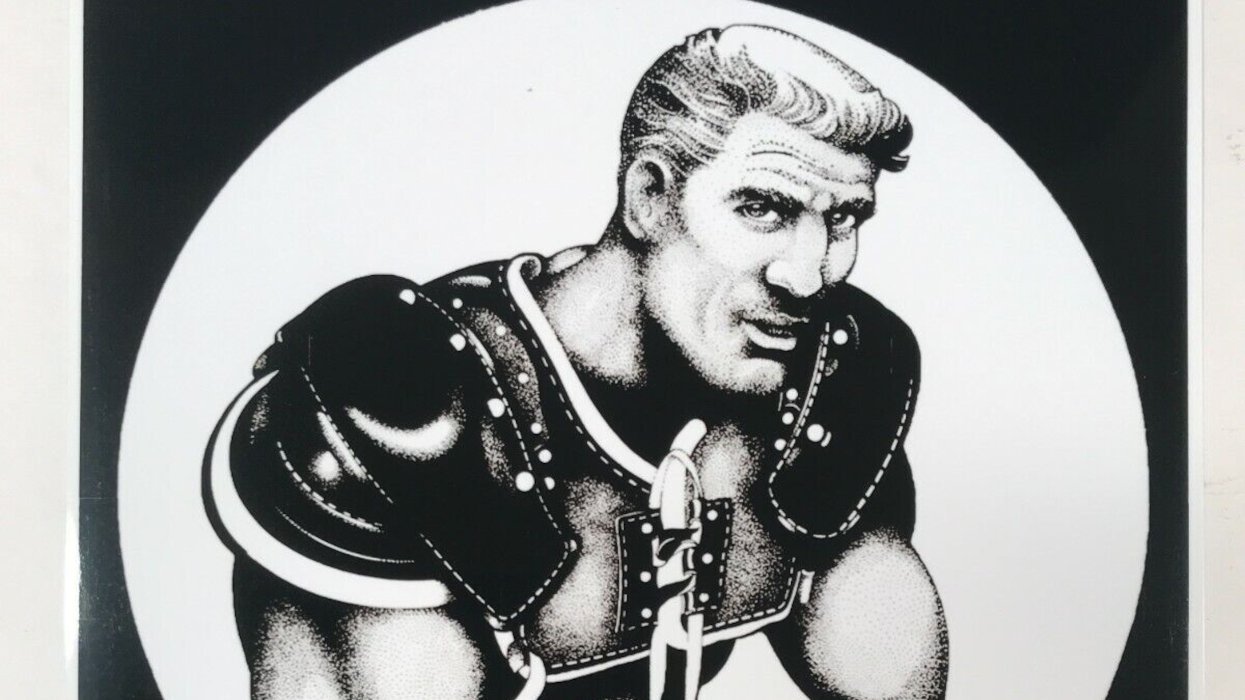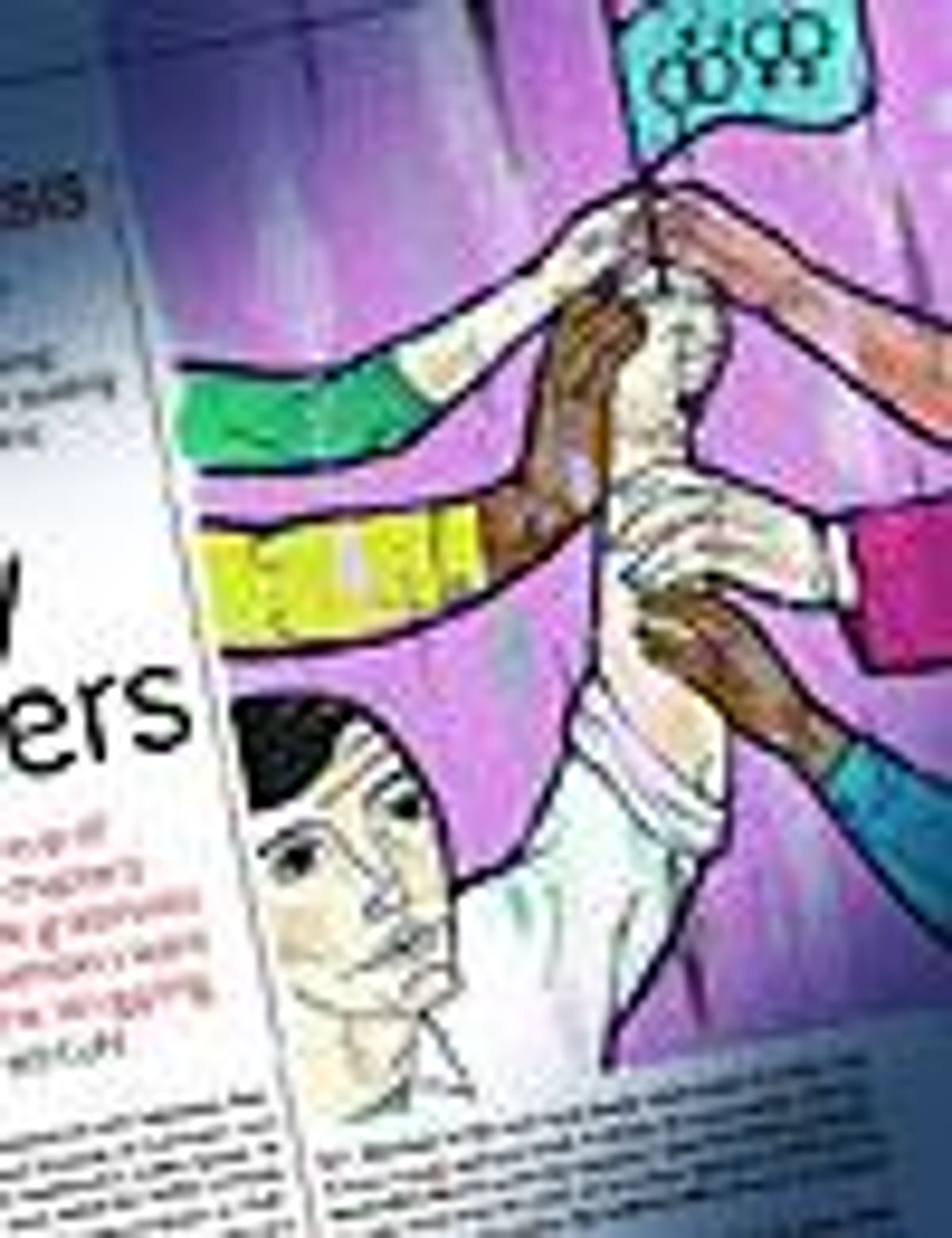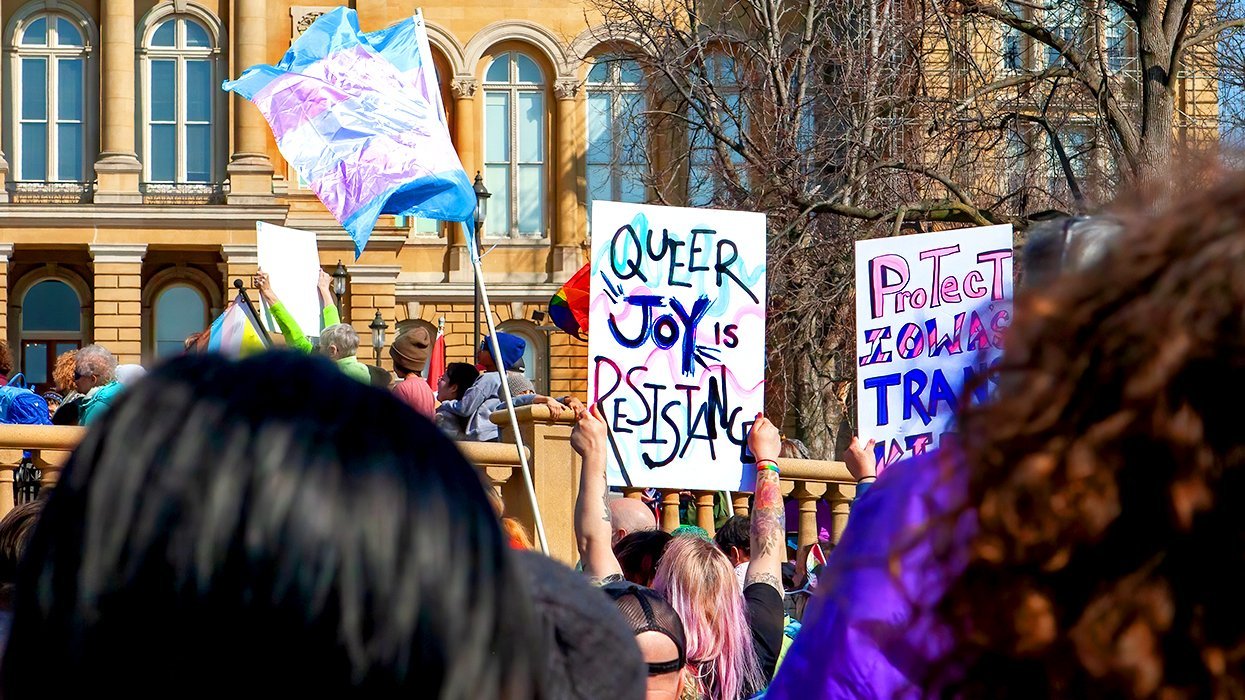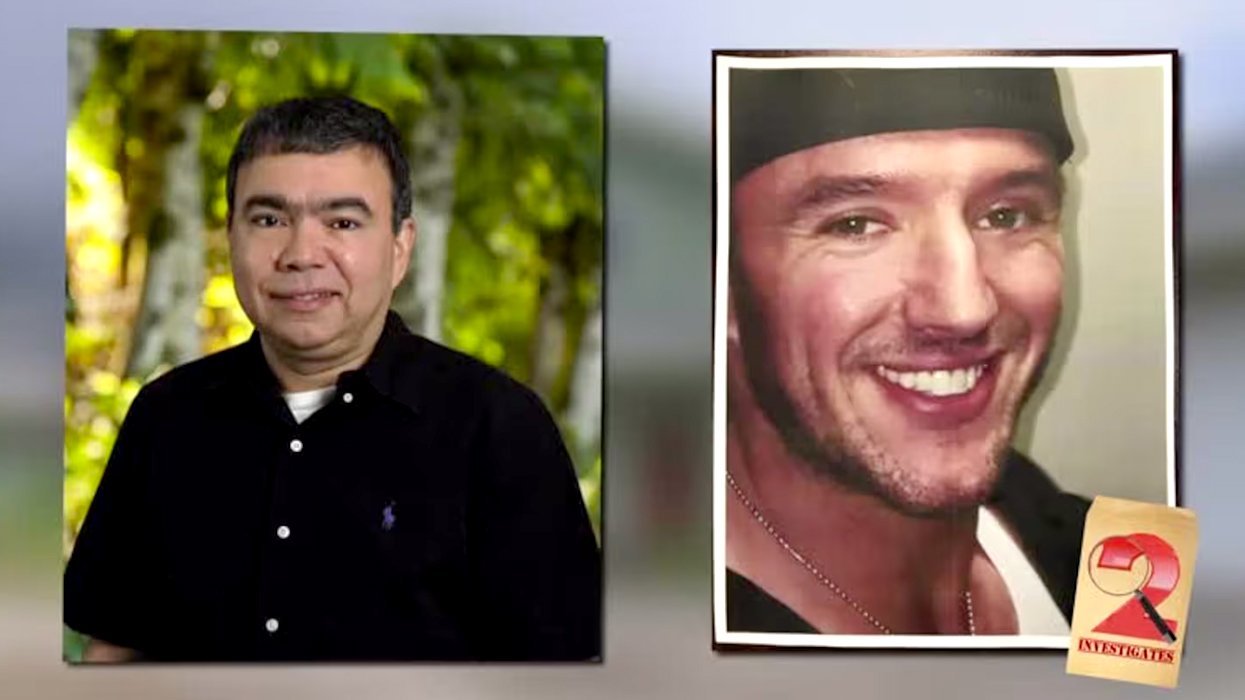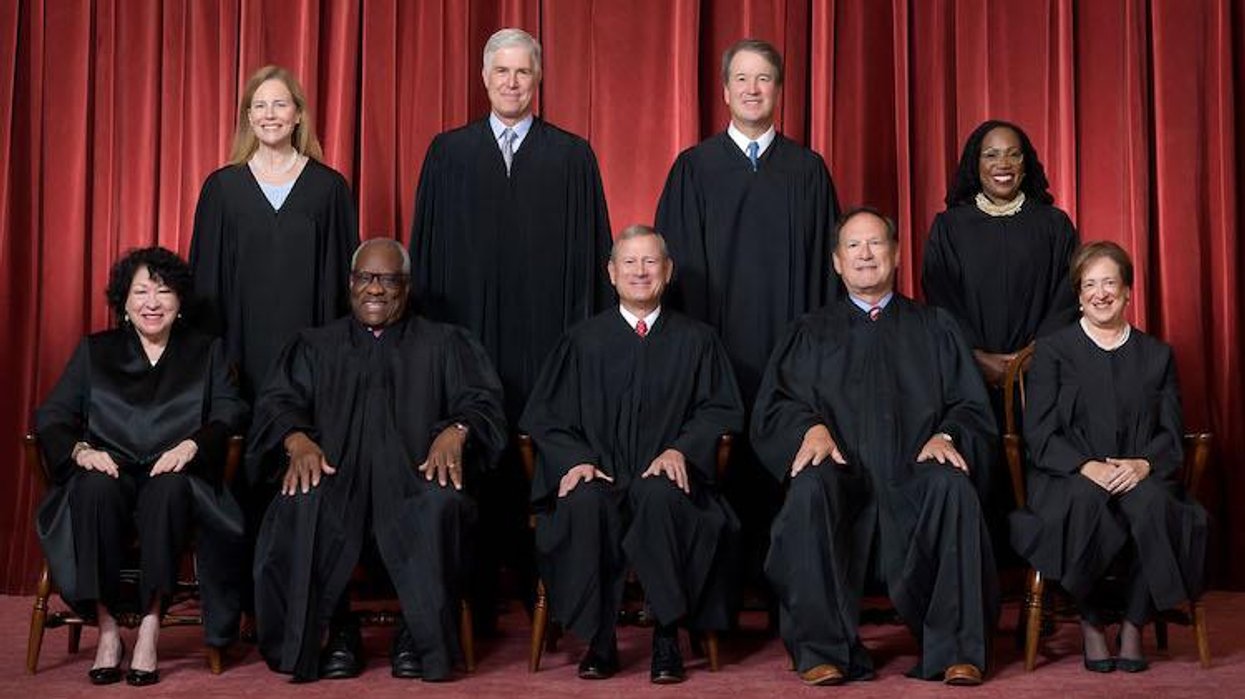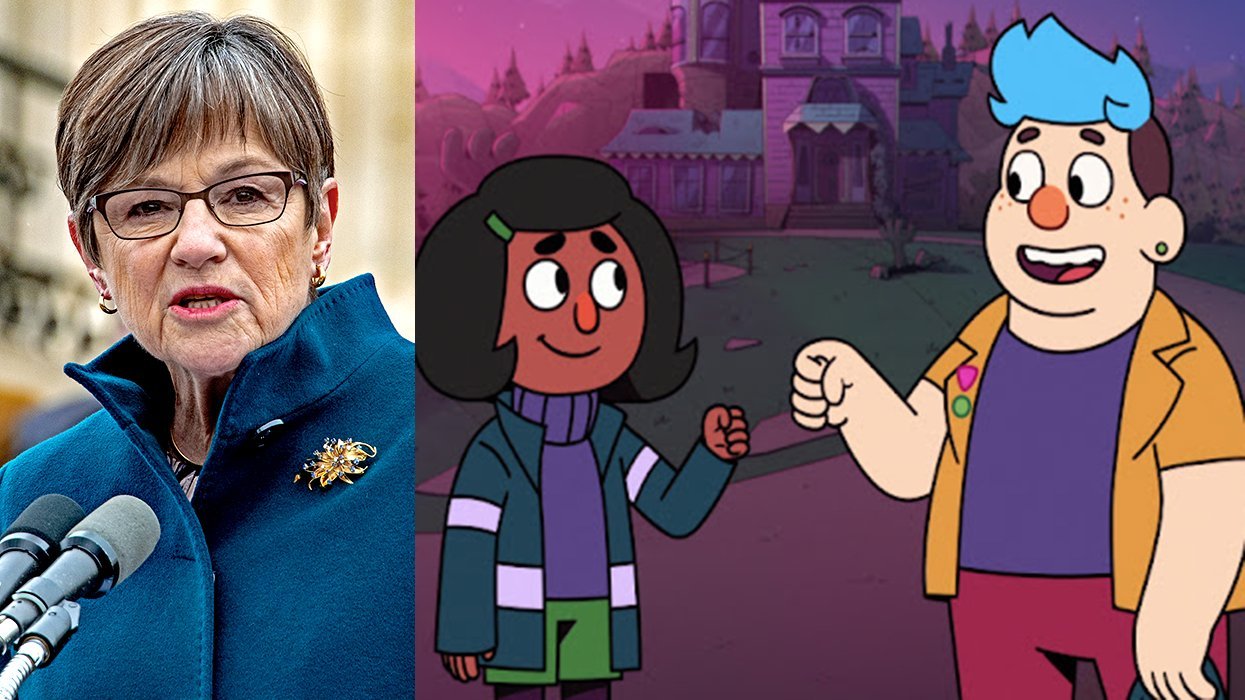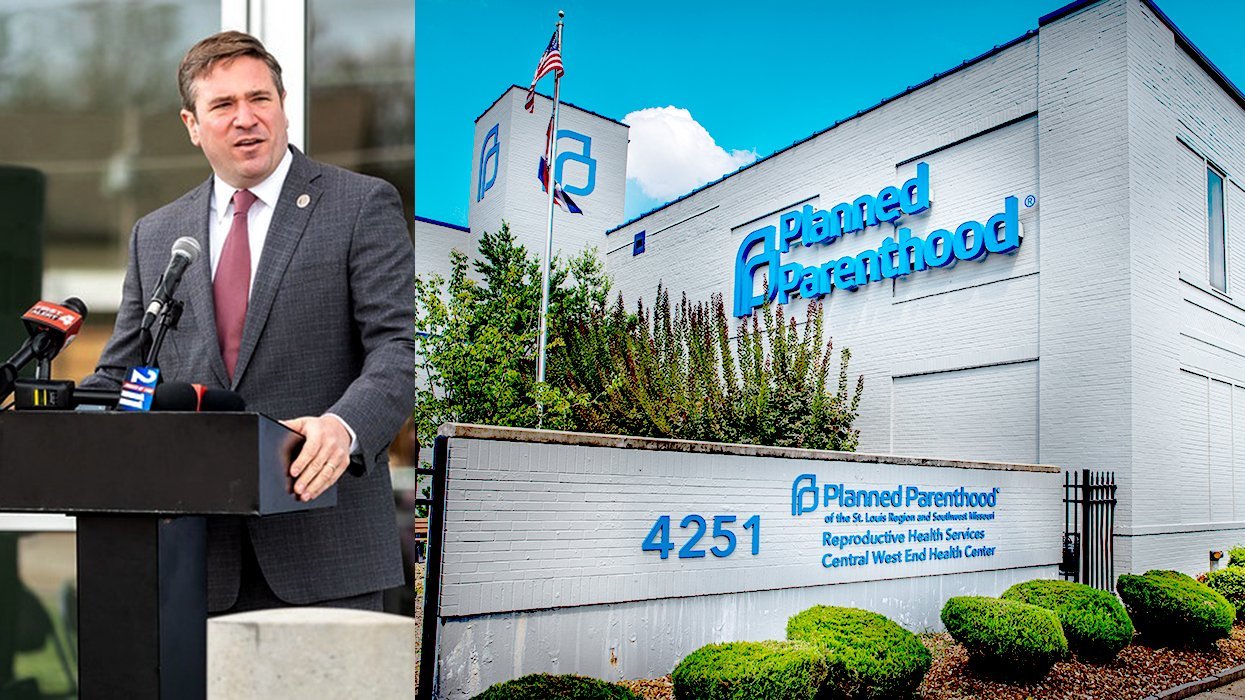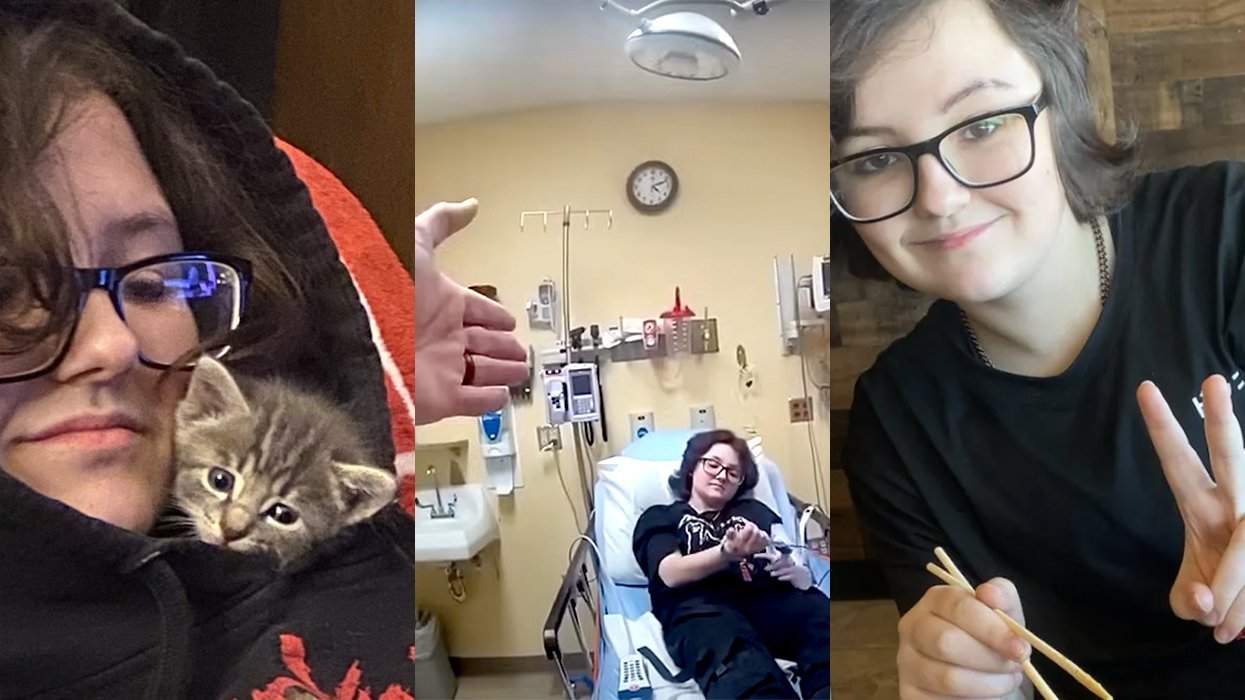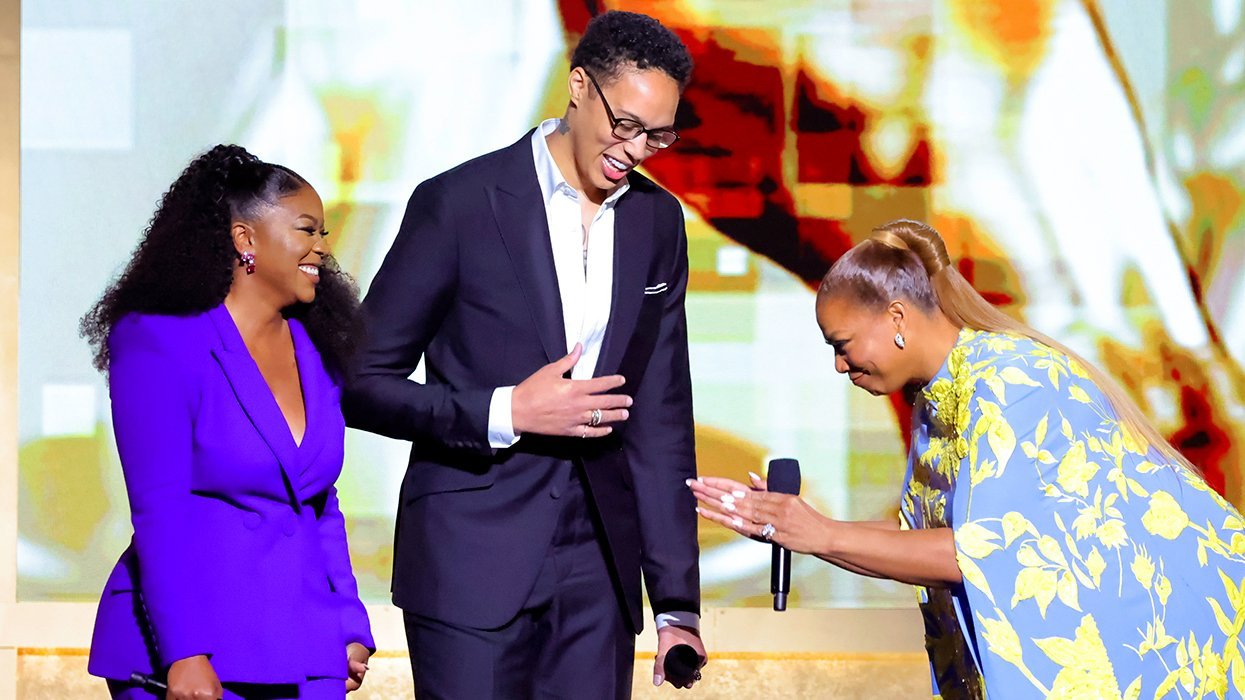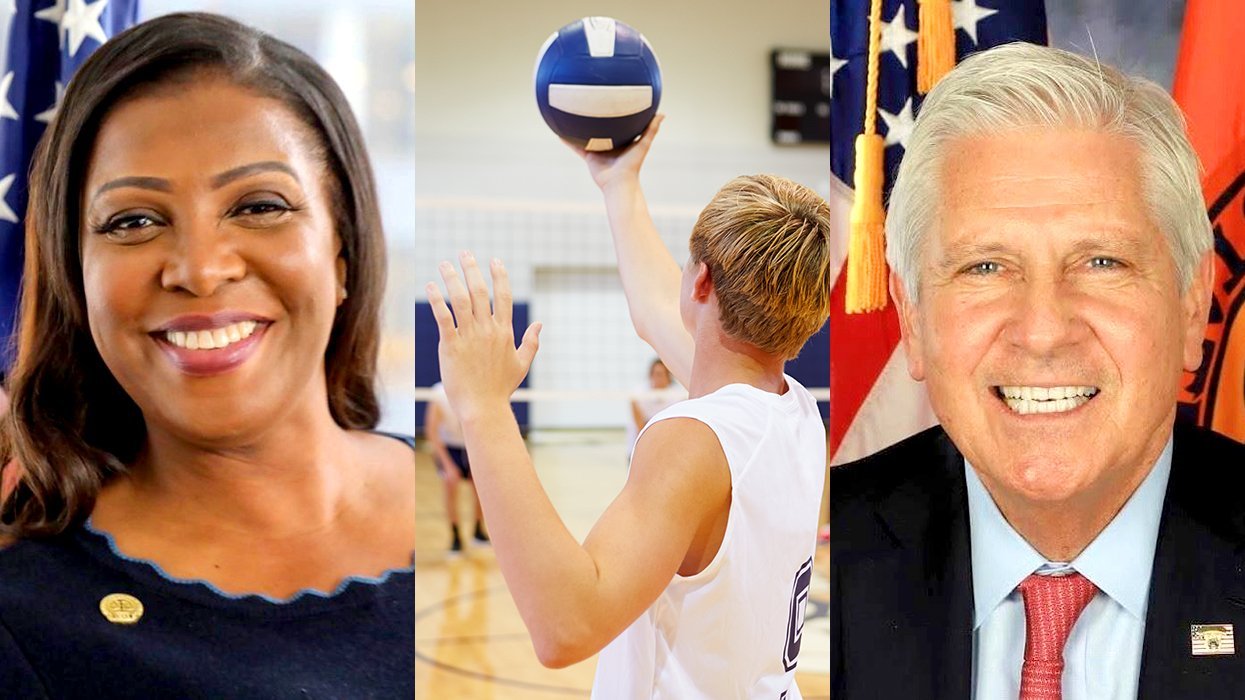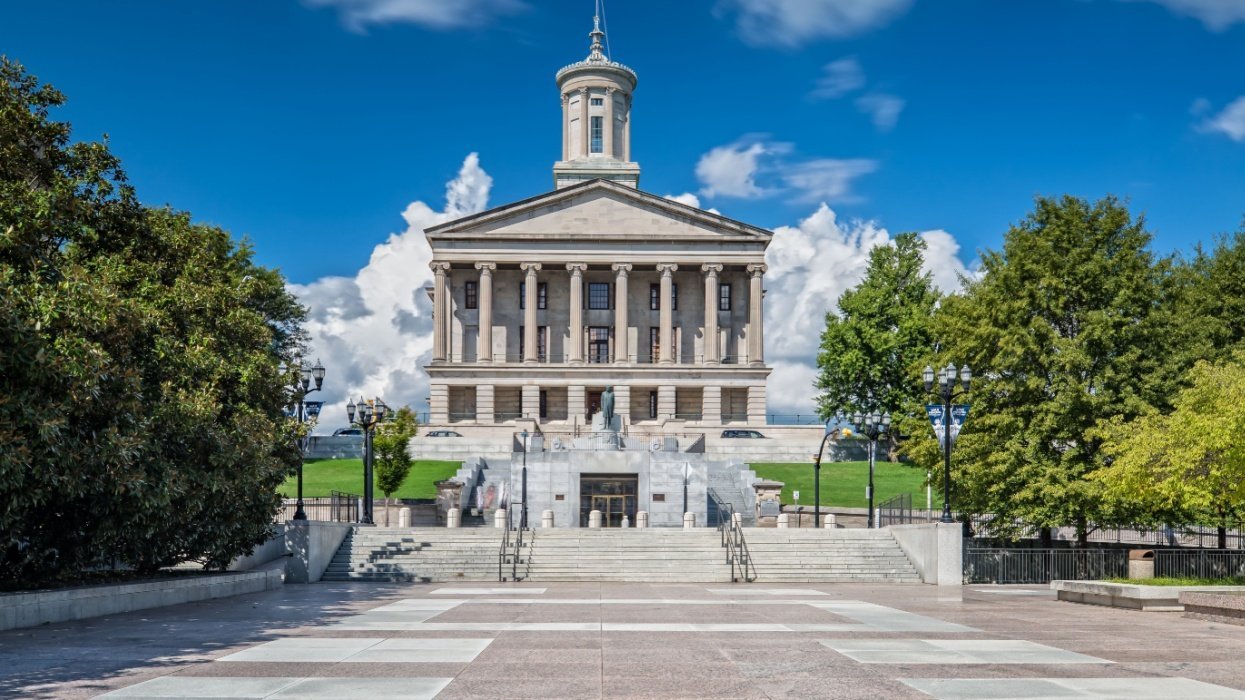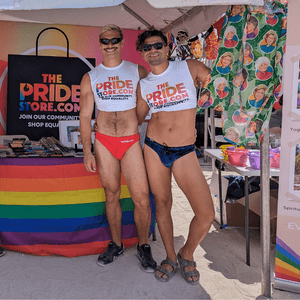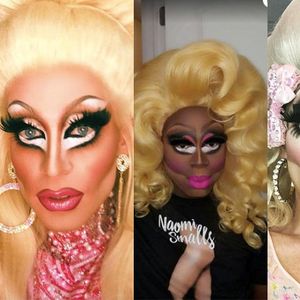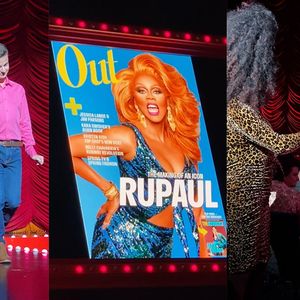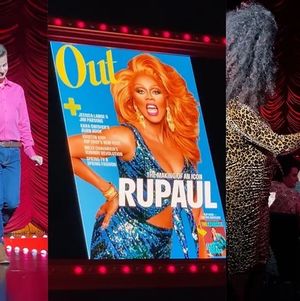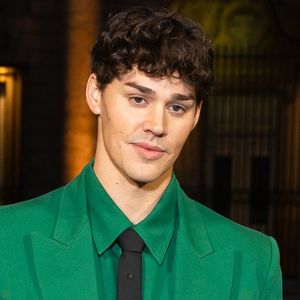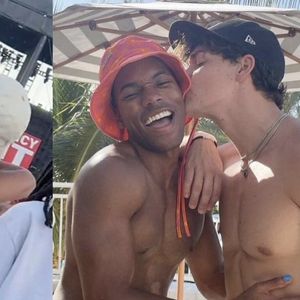All Rights reserved
By continuing to use our site, you agree to our Private Policy and Terms of Use.
Gays--the national organization better known as PFLAG--couldn't have asked for better publicity than it received from Showtime's Queer as Folk. Sharon Gless plays the brassy mama Debbie Novotny, who is a proud member of the Pittsburgh chapter. PFLAG buttons weighed down her work uniform (until she quit her waitressing job this season) and partially obscured her i am proud of my gay son T-shirt.
Debbie Novotny is the kind of ideal that an organization like PFLAG stakes its public identity on. Its timeless and universal role as a group of straight allies making public proclamations of pride--many times in parades and protests in the most conservative parts of the country--evokes raw emotion in gay men and lesbians. Members are a huge source of comfort and education to parents who are coming to grips with their child being gay. PFLAG is the only major national gay and lesbian civil rights group whose members are not predominantly gay or lesbian. It currently boasts 500 U.S. chapters with 200,000 members.
And unlike the other major gay rights organizations, it is guided by the local chapters and not the national office in Washington, D.C. Members at the local level decide what issues to tackle, how to raise money, and how much to charge for membership. "The national office did not create the chapters," says Jody Michael Huckaby, who took over the post of executive director of PFLAG in March. "In fact, the reason the national office exists is to support the chapters."
Some chapters have been around for more than 30 years, while the national office and position of executive director have existed for half that time. The downside to PFLAG's grassroots origins and local control can be a considerable weakness in coordinated organizing and activism. PFLAG is largely lacking the national fund-raising, membership building, and public relations efforts that are the lifeblood of other GLBT groups. This absence is frustrating to some chapter officials.
"For those of us in the nitty-gritty of operating a chapter, the national office doesn't give those of us in the trenches enough support," says Myra Shays, president of the Greater Providence, R.I., chapter. "I'd like to know what we're getting for what we are sending them." Shays is referring to the fact that while each chapter sets its own membership fees, chapters must send $15 per member per year back to the national office--a bone of contention for some chapters with limited funds, resources, and members.
Lack of support from the national office was also a problem for the Brooklyn, N.Y., chapter, which folded in 2001 after operating for 13 years.
Former group member Linda Simka says that after a number of years of successful meetings, attendance began to drop. Members marched in pride parades, spoke at Brooklyn College, took out ads in local newspapers, hung fliers around the chapter's home base of Park Slope, held a speakers series, managed a lending library, and even chipped in for food for a Christmas party. "We kept going, but in the end it was the same seven people over and over again," says Simka. "We had no money, and the seven of us just couldn't do it alone. Then three of the seven moved away, and there was nothing to do but fold."
So it wasn't money that the Brooklyn chapter necessarily needed but rather help from the national office on increasing membership. "How do you make people attend a meeting if they don't want to or don't feel like it? You need people to come to the meetings no mater what national does," Simka says. "They could have given us $5,000, but if there's no interest, there's not much else we could do."
David Tseng, the group's previous executive director, defends PFLAG's bottom-up approach: "The national office respects and values the authenticity of grassroots activism, which is unique in our movement."
Huckaby does acknowledge that PFLAG could do a better job of tackling issues such as chapter support but adds, "It's amazing what PFLAG has been able to do with the resources it has. We have four field and policy coordinators, and we would need 10 to really cover the country. We need to be at chapter meetings. We need to be able to offer more training. We have over 500 chapters and affiliates, and we need to strengthen the chapters we have as well as get ready for the next 500."
Huckaby also admits PFLAG is reticent about tooting its own horn. "I don't think we've been as good at marketing who we are. It's great that PFLAG gets the loudest applause at the pride parade, but it's important that GLBT folks support PFLAG so that parents' stories can continue to be told."
In PFLAG all chapter leaders as well as regional directors--there are seven who act as liaisons between a group of chapters and the national office--are volunteers, one reason PFLAG relies heavily on retirees. Jerry Miller, for example, is the regional director overseeing 27 individual chapters in North Carolina, South Carolina, Kentucky, and Tennessee. A 71-year-old retired American Baptist pastor, Miller, based in Hendersonville, N.C., devotes 15 to 20 hours a week to his volunteer job in addition to traveling around the region to attend meetings.
"This is a big job for a volunteer," says Frances Kirschner, 61, a former president of the Philadelphia chapter. "It would be great if we had the money for a paid administrative assistant or something like an office. Right now we keep literature at someone's house, and our members are spread out all over the Philly area, including southern New Jersey, so sometimes it's hard to get to. And we meet in a church basement where they don't ask for rent. We only take up a collection for the custodian."
"Yes, burnout is a problem," adds Miller. "But most of us are parents who are driven to see that our gay children get the same rights as our straight children."
While money remains an issue, others feel that the beauty of PFLAG is that the community drives the chapter. "If we had more money, I'm sure we'd be able to do some wonderful things," says Tamara Hawk, president of the Flint Hills, Kan., chapter. "But the heart of the chapter comes from the local community. The chapter tailors itself to your community's needs."
Hawk's chapter was at the forefront of trying to beat back Kansas's constitutional amendment barring gay couples from marrying, which was approved by 70% of voters in April. The chapter spent $3,000 on political ads. During the battle, Hawk says, she had a great deal of contact with the national office, but it was only because the chapter wanted the contact. "Local politics set the agenda for the chapters," she says.
PFLAG was founded in 1972 when Jeanne Manford decided to march with her son Mortie in New York City's pride parade. Angry that her son had been assaulted at a gay rights rally two months earlier while police did not attempt to stop the beating, she carried a sign in the parade that read parents of gays: unite in support for our children. The first formal meeting took place in early 1973. Through word of mouth PFLAG chapters sprung up around the country, and in 1979 leaders from the different groups met for the first time in Washington, D.C. PFLAG didn't hire its first executive director and open its headquarters until 1990.
According to the group's Web site, PFLAG president Paulette Goodman sent a letter to Barbara Bush in 1990 asking for Mrs. Bush's support. The first lady's personal reply stated, "I firmly believe that we cannot tolerate discrimination against any individuals or groups in our country. Such treatment always brings with it pain and perpetuates intolerance." Inadvertently given to the Associated Press, her comments caused much political controversy.
In the early 1990s, PFLAG chapters in Massachusetts helped pass the first "safe schools" legislation in the country. In 1993, PFLAG added the word "Families" to its name and added bisexuals to its mission and work. By the mid 1990s a PFLAG family was responsible for the Department of Education's ruling that Title IX protected students from harassment based on sexual orientation.
During the past 14 years, Huckaby, 40, has served as executive director of New Mexico AIDS Services, based in Albuquerque; Bering Community Service Foundation, an HIV/AIDS service group based in Houston; and most recently the Washington Humane Society. Huckaby is a native of Eunice, La., a town of 11,500 about 150 miles west of New Orleans that bills itself as the state's "Prairie Cajun Capital." Huckaby is the seventh of eight children born to his Republican Catholic parents. Not only is Huckaby gay; he has three gay brothers.
"Having been raised in a large family in a small town, I know the challenges that families can face when coping with sexual orientation and gender identity," he says. "My family didn't have the resources of PFLAG to help us back then."
Given his humble beginnings and experience in the nonprofit sector, it is no surprise Huckaby feels at home at PFLAG. The group occupies the fourth floor of a nondescript downtown office building, and the offices are replete with fluorescent lighting and dropped ceilings, stacks of storage boxes and books everywhere, drab metal office furniture, flat white walls, and drooping plants. PFLAG employs a staff of 15. "When people come to see us for the first time in our office, they always say that it is much smaller than they thought it would be," says Huckaby.
For Kevin Jennings, executive director of the Gay, Lesbian, and Straight Education Network, a civil rights group for educators, PFLAG's strength is its members' ability to speak honestly to others.
"You have to meet people where they are, and PFLAG is able to meet other parents where they are--around the commonality of the love for one's children and the want of their children to live in a world free of antigay discrimination," says Jennings. "When a PFLAG member speaks, they take it out of the 'special rights' context and into a very real and personal context. No other organization can do that quite like PFLAG."
Still, given all the time and effort, why do PFLAG volunteers continue to do what they do? At the 2003 pride parade in Raleigh-Durham, N.C., Miller, the regional director based in Hendersonville, marched with the local PFLAG contingent. He recalls that amid all the applause and the tears, "one young man said to me, 'I wish my dad was out here.' That makes it all worthwhile."
Want more breaking equality news & trending entertainment stories?
Check out our NEW 24/7 streaming service: the Advocate Channel!
Download the Advocate Channel App for your mobile phone and your favorite streaming device!
From our Sponsors
Most Popular
Here Are Our 2024 Election Predictions. Will They Come True?
17 Celebs Who Are Out & Proud of Their Trans & Nonbinary Kids
Here Are the 15 Most LGBTQ-Friendly Cities in the U.S.
Which State Is the Queerest? These Are the States With the Most LGBTQ+ People
These 27 Senate Hearing Room Gay Sex Jokes Are Truly Exquisite
10 Cheeky and Homoerotic Photos From Bob Mizer's Nude Films
42 Flaming Hot Photos From 2024's Australian Firefighters Calendar
These Are the 5 States With the Smallest Percentage of LGBTQ+ People
Here are the 15 gayest travel destinations in the world: report
Trending Stories & News
For more news and videos on advocatechannel.com, click here.
Latest Stories
Supreme Court lets Idaho enforce law criminalizing gender-affirming care for minors
